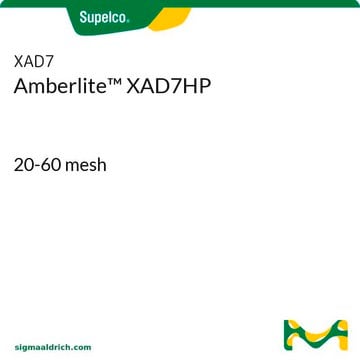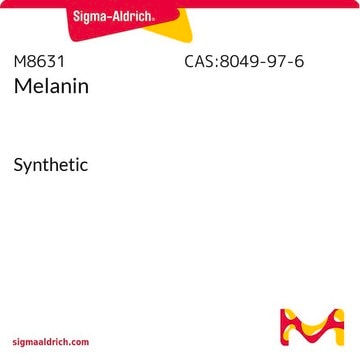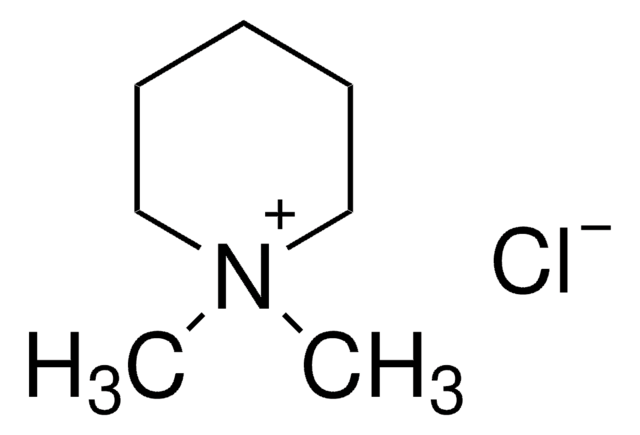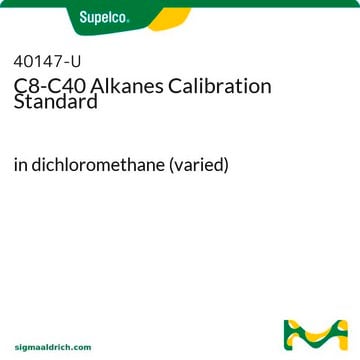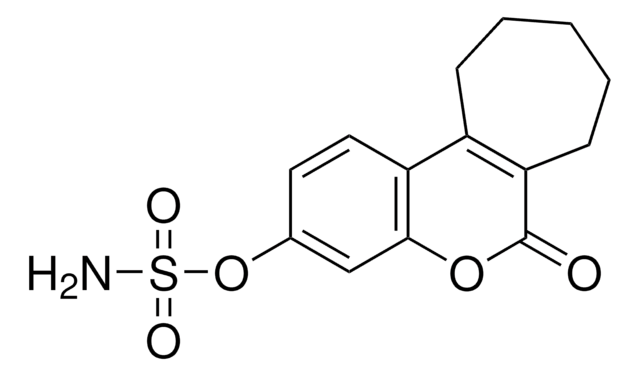Recommended Products
grade
technical
Quality Level
form
solid
ign. residue
~20%
InChI
1S/K
InChI key
ZLMJMSJWJFRBEC-UHFFFAOYSA-N
Looking for similar products? Visit Product Comparison Guide
Related Categories
General description
Humic acid (HA) is a heterogeneous macromolecule mainly found in soil and water.
Application
Humic acid has been used to prepare stock solution employed in the following experiments:
- Coagulation activity assay of Moringa oleifera protein extracts for humic acid removal.
- Adsorption edge experiment to study its effect on the sorption of tetracycline onto goethite.
- Evaluation of the ability of polymeric adsorbent Supelite Dax-8 to remove humic acid from nucleic acid extracts prior to quantitative real-time PCR (qPCR).
Legal Information
Storage Class Code
11 - Combustible Solids
WGK
WGK 3
Flash Point(F)
Not applicable
Flash Point(C)
Not applicable
Personal Protective Equipment
dust mask type N95 (US), Eyeshields, Gloves
Certificates of Analysis (COA)
Search for Certificates of Analysis (COA) by entering the products Lot/Batch Number. Lot and Batch Numbers can be found on a product’s label following the words ‘Lot’ or ‘Batch’.
Already Own This Product?
Find documentation for the products that you have recently purchased in the Document Library.
Joon-Yung Cha et al.
Scientific reports, 10(1), 15042-15042 (2020-09-16)
Humic acid (HA) is composed of a complex supramolecular association and is produced by humification of organic matters in soil environments. HA not only improves soil fertility, but also stimulates plant growth. Although numerous bioactivities of HA have been reported
Improving qPCR efficiency in environmental samples by selective removal of humic acids with DAX-8.
Schriewer A, et al.
Journal of Microbiological Methods, 85(1), 16-21 (2011)
Nuria Polo-Cavia et al.
Aquatic toxicology (Amsterdam, Netherlands), 172, 30-35 (2016-01-15)
Recent studies suggest that direct mortality and physiological effects caused by pollutants are major contributing factors to global amphibian decline. However, even sublethal concentrations of pollutants could be harmful if they combined with other factors to cause high mortality in
Coagulant properties of Moringa oleifera protein preparations: application to humic acid removal.
Santos A F S, et al.
Environmental Technology, 33(1), 69-75 (2012)
Adsorption of tetracycline onto goethite in the presence of metal cations and humic substances.
Zhao Y, et al.
Journal of Colloid and Interface Science, 361(1), 247-251 (2011)
Our team of scientists has experience in all areas of research including Life Science, Material Science, Chemical Synthesis, Chromatography, Analytical and many others.
Contact Technical Service


